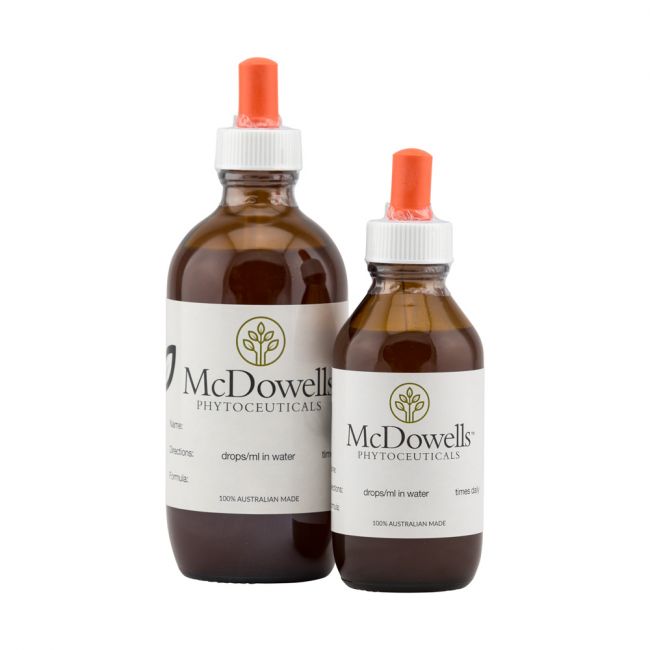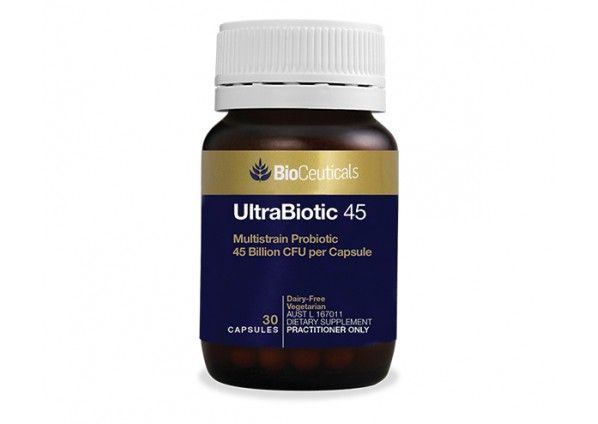Candida albicans, the most common human fungal pathogen(1). The Candida yeast organism is normally kept in check by the human immune system and remains in the gut. But sometimes, particularly when the immune system is compromised, it will multiply rapidly, leave the gut and overwhelm our system. This leads to a variety of unpleasant symptoms - collectively known as Candidiasis or yeast infection.

Candida is opportunistic. That is, it takes over when mechanisms that usually keep it in check are temporarily weakened.
Hormonal changes in the body, as with hormone therapy, pregnancy and the contraceptive pill can trigger a yeast infection in people whose immune systems are under challenge, eg stress. Repeated courses of anti-biotics can also be a trigger.
Yeast grows best in a warm, moist environment. This means that tight, poorly ventilated clothes, for example nylon or synthetic fibres, pantyhose, and undergarments without a cotton crotch, may increase your risk of infection. Sweaty gym clothes and wet bathing suits are common culprits as well.
Wiping from back to front instead of from front to back after a bowel movement may contaminate the vagina with Candida from the gastrointestinal tract, and could increase the risk for yeast infections.
Douching may also disrupt the delicate balance of natural organisms (such as yeast and bacteria) in the vagina and could lead to an infection. And if you already have an infection, douching may make it worse and make it harder for your doctor or healthcare professional to identify the problem.
Scented or chemically treated toilet paper and sanitary napkins, feminine deodorants, perfumes, spermicides, harsh soaps, and detergents may irritate the vagina and cause an infection or make an existing one worse.
Cadida can also be transmitted via sexual intercourse so your partner may inadvertent;y be reinfecting you even though they may be symptom free.
To address Candida please consider all of the above plus dietary changes by excluding a foods containing yeast. This must be adhered to for 12 weeks. There are many websites which will identify all the foods that contain yeast products.Many products have hidden yeast content so research this well.
Also reduce all pre prepared foods & any alcoholic or caffeinated or carbonated beverages. drink water & herbal teas avoid fruit juices unless you are squeezing the fruit yourself.
Candida comes about via a yeast-like fungi called Candida albicans. Not a foreign invader at all, Candida occurs naturally in the vagina, on the skin in moist areas and especially in the digestive tract. Only when it gets out of hand and grows disproportionately in the intestines does it begin to contribute to various health problems, including appetite loss, belching and an overabundance of stomach acid. One of the biggest concerns is graphically termed a "leaky gut."
Candida is usually concentrated in the digestive tract. "Systemic" candidiasis, which occurs when Candida gets into the blood and travels to other parts of the body, is fortunately quite rare - it usually occurs only in people whose immunity is compromised, such as people with AIDS or those undergoing chemotherapy.
Candida is really an expression of an out of balance gut flora. Often more common in those who attempt to digest their stresses rather than express and clear them from their systems. In my experience around 40% of my patients will rather process their stress by upsetting aspects of their own digestive system 'in order to keep the peace' by snacking on high sugar 'comfort foods' for example rather than deal with the stresses outwardly.
Of course in the age of snacks, processed food and over-prescription of antibiotics there are imbalances which are caused directly by such substances which can foster yeast over-growths which can then develop a momentum of their own and get out of hand. Again, however, this is more common in folk whose own digestive system is not well protected emotionally.
Contributing Factors
- Prolonged use of antibiotics, corticosteroid drugs, and birth control pills, at any time in the pastdiet high in processed sugars which encourages candida growth, and
- Pre-existing immunosuppression caused by drug or alcohol abuse, multiple blood transfusions, debilitating illness, organ transplants, or chemotherapy.
- Low stomach acidity leading to poorly digested food and
- Improper bowel movements leading to prolonged retention of fecal matter in the colon: these conditions promote yeast overgrowth
Symptoms of candida
The symptoms of candida and their severity vary from person to person but the main ones are:-
- Chronic fatigue, especially after eating
- Depression, craving for breads and sugars (yeast eats sugar)
- Extreme mood swings, feelings of rage, especially after eating sugary foods,
- Feeling "drunk" after eating a meal high in carbohydrates (candida's waste is alcohol), hypoglycemia,
- Excessive mucous of the throat, nose, and lungs,
- Chronic fungal infections of the skin (jock itch, athlete's foot) or
- Vaginal/oral thrush,
- Diarrhea, anal itching,
- Short-term memory loss,
- Feeling "spacy," or forgetful
- Bloating or gas after eating
The best way to deal with Candida is therefore to starve them of their primary nutrients, to tone the gut lining to make it more able to protect itself and to aid in the repopulation of the gut with healthy flora. Also of course to learn to handle stresses in slightly different ways.
I recommend stopping all eating between meals, stop processed and high sugar foods and drinks and to peel and swallow a single small fresh clove of garlic twice daily.
In addition to this I make up a herbal mix containing some of the 'bitter' herbs which not only discourage the yeast but tone the gut lining and some nervous system tonics, which assist in modifying your stress management reactions.
Nutritional suggestions
- Supplementation with acidophilus and bifido bacteria is essential to recolonize the intestines. While these bacteria will not kill candida, they inhibit candida's growth and, generally, clean up the bowels, making it more difficult for candida to thrive.
- A cup of chamomile tea just before or after eating will stimulate HCL production by the stomach. Chamomile will also ease any gas and/or bloating and contains potent anti-candida compounds.
- Since candida loves sugar, it must be avoided in all its forms (dextrose, sucrose, glucose, maltose, lactose, fructose). Low sugar fruits like strawberries, cherries, and papayas can be eaten in strict moderation
- Restrict the following foods for 3 month period: wheat, rye, milk, cheese, alcoholic or caffeinated beverages, potatoes, honey, mushrooms, and vinegar: all these foods promote yeast growth or can aggravate already present yeast colonies.
- Clean up the digestive system, the ultimate source of the problem.
- Drink 4-5 glasses of water per day and adequate fiber intake to avoid constipation
McDowells product recommendations
The Candida formula is designed to aid in balance of gut flora. The mix includes Garlic, Golden Seal, Liquorice, Chamomile, Dandelion, Wormwood, PauD'arco and Ginger along with the Bach Flower Remedies: Chestnut Bud, Red Chestnut and Aspen.
References
(1) Manipulation of Host Diet To Reduce Gastrointestinal Colonization by the Opportunistic Pathogen Candida albicans
https://pubmed.ncbi.nlm.nih.gov/27303684/




